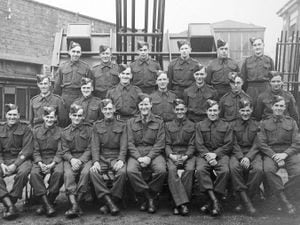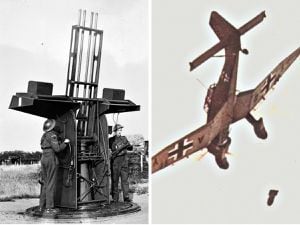Ex-police chief recalls Birmingham pub bombings which shook a nation
A retired detective has recalled his horror at being caught up in the Birmingham pub bombings, and believes attempts to make a warning call to the police beforehand were "irrelevant".
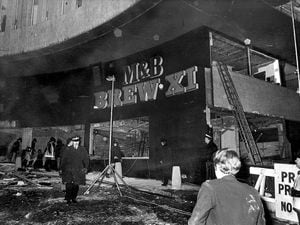
Twenty-one people were killed and more than 180 injured when bombs planted by the IRA ripped through The Mulberry Bush and Tavern in the Town pubs in 1974.
Mike Layton was a 22-year-old Pc relatively new to the job when he was alerted to the atrocity in the centre of Birmingham.
Mr Layton, now 67, who went on to climb the ranks to become Chief Superintendent, has written a book on his 30-year career with the force, where he worked on some of the most high-profile cases of the era.
His involvement in the Birmingham bombings was brief but he remembers vividly the stream of officers filing into the city centre towards the Rotunda building, which housed the Mulberry Bush on its lower two floors, responding to what was then the deadliest attack on British soil since the Second World War and the biggest attack on the West Midlands.
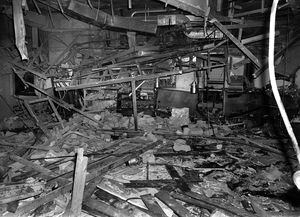
If there were any specific concerns about the IRA that night they centred on where a young Mr Layton was, at Birmingham's Elmdon Airport.
He was helping guard the coffin of IRA man James McDade, who had blown himself up trying to plant a bomb in Coventry, ahead of his funeral.
The police presence was high amid fears the group might try and mark the occasion to honour their fallen member.
That funeral would later play a larger part in the tale of the bombings and the dramatic release of the men convicted over them.
Mr Layton said: "Suddenly a message came through saying something was happening in Birmingham city centre.
"A lot of us got bussed in, and I mean bussed in. We were on the red Midland buses and I remember seeing this column of officers marching up to the Rotunda.
"I don't know what the Blitz was like but if I was to guess it would have been like that. A hopelessness, a dark, grey night.
"I got stood down. They needed normal policing the next day.
"It was not something I dwelt on. Having said that, we're human and it was shocking and extremely tragic. There were some really young people, but it didn't matter how old they were."
Much of the focus of the recent inquests was on what the police and security services were told about the bombings and whether they had been warned in advance that they would happen.
Jurors concluded in April there were no errors in the way police responded to an IRA warning call and that their actions did not contribute to the deaths of 21 people.
They ruled a botched warning call by the IRA, which cost the police crucial time, contributed to the deaths of those killed in the bombings and that the West Midlands force did not receive a tip-off.
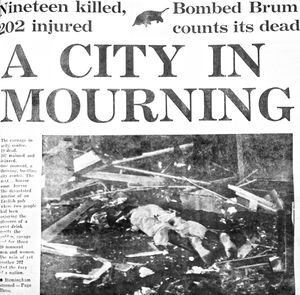
It was part of an IRA code to give adequate warning before bombs went off to allow members of the public to get out in time and prevent loss of life where possible, though there have been accusations that it was convenient for the terror group that the initial phone box chosen for the call didn't work, and that was merely used as a cover story.
But Mr Layton, whose book Reporting for Duty charts major events and investigations during his time with the force, said he did not believe it was right to try and blame the police and deflect from the fact it was terrorists who chose to attack the city that night.
He said: "I think it's almost an irrelevance. This was a terrorist attack and whether they made a call or were unable to make a call, to me it's irrelevant.
"Somebody constructed a device which was designed to kill. This issue of if it was or wasn't going to be made is just a way of mitigating and softening reality."
The bombings have remained in the public consciousness in the almost half century which has passed since the atrocity, largely thanks to the tireless fight for justice from loved ones of those killed.
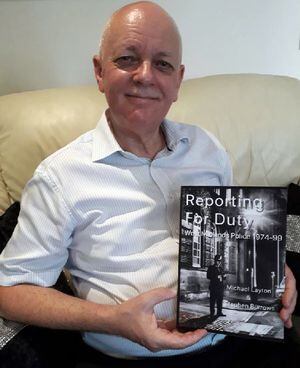
West Midlands Police came in for heavy criticism following the quashing of the convictions of those who came to be known as the Birmingham Six in 1991 after doubts were raised about their involvement in the bombings, and their convictions declared unsafe and unsatisfactory.
The retired police chief says he has the utmost respect for the families who have continued to campaign in the face of adversity.
The recent inquests were a step forwards but the findings the victims were unlawfully killed served to give a new vigour to calls for police in Britain and Ireland to bring the perpetrators to justice.
Mr Layton said: "Their search for the truth and justice is something to be admired. They have been tenacious. When you suffer a personal tragedy it stays with you for the rest of your life.
"As time goes on it gets harder to get justice but you have to admire their strength, courage and purpose."
Serious questions have been raised about the investigation into the bombings which saw the Birmingham Six jailed, only to be released 17 years later.
The six had lived in Birmingham since the 1960s. Five left New Street station the night of the bombings to attend the funeral of McDade, whose coffin Mr Layton had helped guard and who had been a childhood friend of the Six.
It was later claimed they were merely "civilians who were in the wrong place at the wrong time".
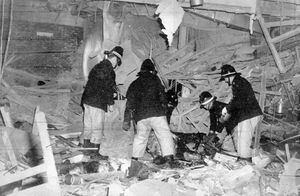
Asked about his feelings on seeing the men walk free and the subsequent impact on the reputation of the force, Mr Layton said, from his experience later on as a detective, things were only ever done by the book as there is "no advantage in simply getting a result".
He said: "As a retired police officer with a total of 42 years' service I can say without hesitation that we prided ourselves on a search for the truth and searching for evidence sufficient to be tested in the courts.
"There is no advantage to anyone in simply getting a result not just because it leads to miscarriages of justice, leaves the real offenders at large, and as importantly gives no closure to the victims and their families."
Despite the level of threat police officers and the military faced at that time – 11 military personnel would go on to be killed at Hyde Park in London in 1982 – Mr Layton said it was not something that played on the minds of officers.
He said: "We were in the middle of an IRA bombing campaign and Birmingham city centre was a target. I was very much a low cog at the time.
"I had been in the British Transport Police so I was aware of previous IRA attacks on the railway network but as a police officer I didn't go around thinking someone was going to plant a bomb.
"I don't think on a daily basis we dwelt on it much. We got a lot of sometimes hoax calls and we got a lot of sometimes calls with intent."
In part one of a two-part feature Mike Layton opens up about the investigation into the disappearance of Stephanie Slater
Reporting For Duty: Twenty Five Years of Policing the West Midlands 1974 - 1999 by Mike Layton and Stephen Burrows is available now for £14.99


